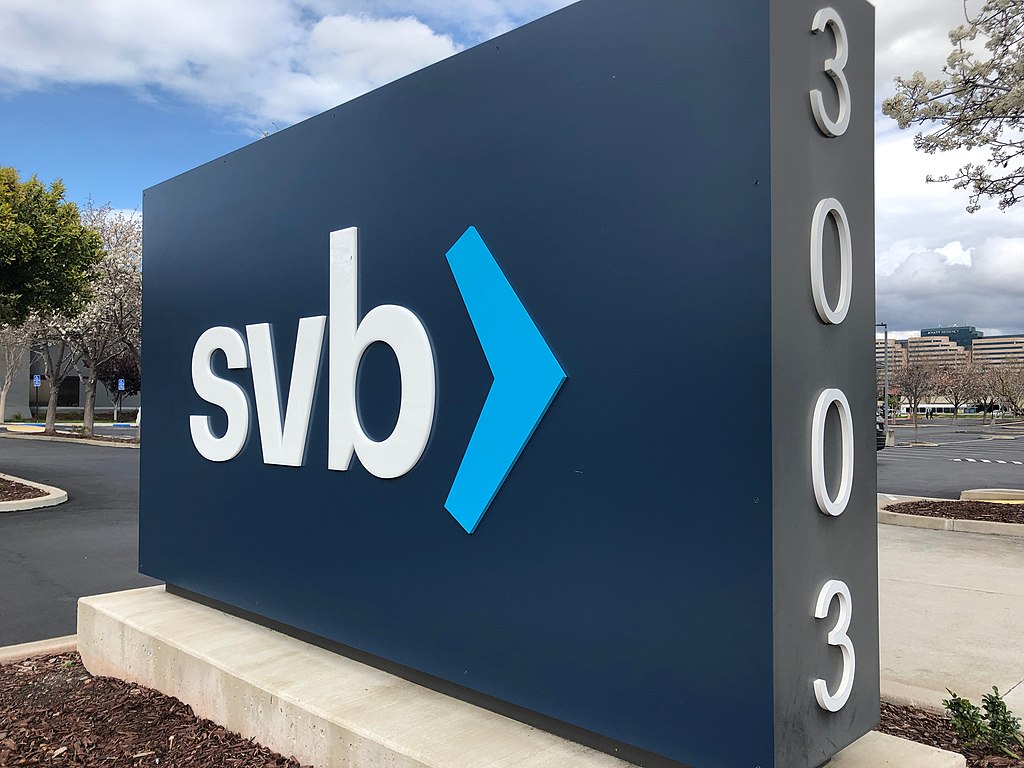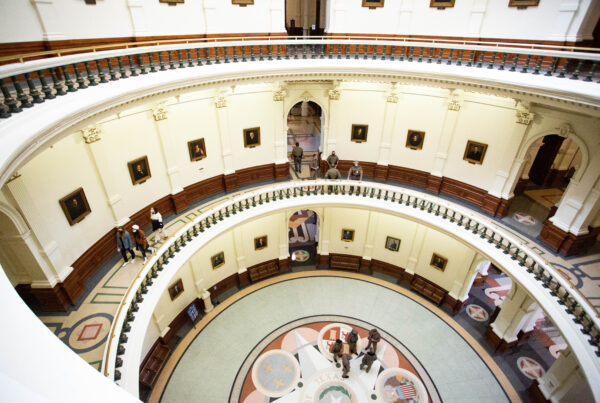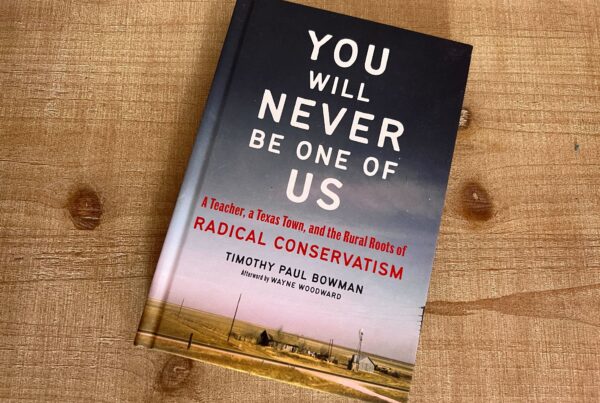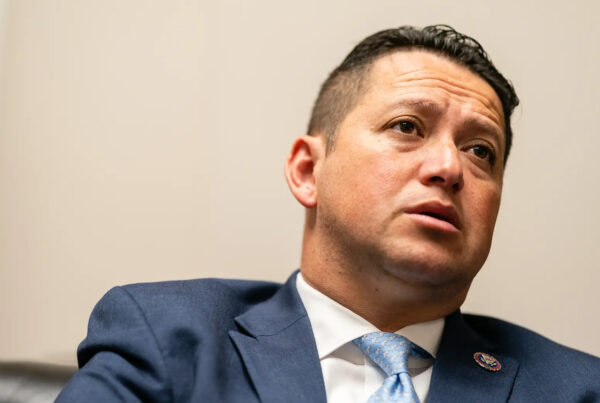The Federal Reserve recently put out a report analyzing some of the failures behind Silicon Valley Bank, the California-based financial institution that went from being the 16th largest bank in the nation to insolvent in just a matter of days back in March.
In the report, the Vice Chair for Supervision Michael Bar wrote, “following Silicon Valley Bank’s failure, we must strengthen the Federal Reserve’s supervision and regulation.”
Aaron Klein, a senior fellow with the Brookings Institution, disagrees with that conclusion, arguing instead that the Federal Reserve should stick to things like setting interest rates and leave the world of bank regulation to other agencies.
He joined the Texas Standard to explain. Listen to the interview above or read the transcript below.
This transcript has been edited lightly for clarity:
Texas Standard: Before we get into the nuts and bolts of what the Fed does, I want to ask you – reasonable people can disagree about this for sure – but do you believe we’re in a banking crisis right now?
Aaron Klein: I think so. I think that the failure of these large banks – a lot of people call them regional banks, but really Silicon Valley didn’t bank people; it banked large tech companies and their senior executives – has set off some uncertainty in the broader market. I think it’s a relatively small panic. It’s not at all like 2008, which was a crisis. But I do think there has been a fundamental questioning of how well-prepared the banks are. And then on top of that, what were the regulators doing? Because the Federal Reserve and others were asleep at the switch.
Is this something that Texans should be worried about?
No. Look, your first $250,000 in the bank is rock solid, insured by the government. That covers 98% of Americans. There are very few people that have more than $250,000 in the bank. So ordinary people shouldn’t be concerned. No. 2, it’s being reported as a regional bank problem. Silicon Valley Bank wasn’t a regional bank. A regional bank usually has about 1,000 branches. Silicon Valley Bank had four.
Right. We’re really talking about the ripple effects across the banking infrastructure, I suppose you could say.
Well, look, when people lose confidence – and part of the problem is the regulators are supposed to be there, being on top of these banks so some things don’t happen – then there is a little bit of a confidence. You ask questions about a panic. A panic is when people start behaving irrationally because they’ve lost trust. And one of the problems with the regulatory failures of SVB: It has undermined trust in the financial system.
Well, now let’s talk about this regulatory failure. You say “asleep at the switch.” Why do you want the Fed to get out of the business of banking regulation? I mean, some would say, well, “is it better to have no one at the switch than just to be asleep?”
No, not at all. America has multiple bank regulators: the Comptroller of the Currency, the FDIC. There are multiple bank regulators in America. In fact, there are many institutions, and that’s their primary mission: to regulate banks. The Fed’s primary mission is monetary policy. Any organization can only have one No. 1 priority. If anybody tells you they have five No. 1 priorities, then they have none.
Well, the Fed says they have five priorities. They say monetary policy, stability of the financial system, soundness of individual financial institutions …
Right, bank regulation is their N0. 3 priority, and organizations with their No. 3 priority often have a difficulty achieving that because they’re focused on their first two objectives. There’s a deep irony here: The Silicon Valley Bank and several of the other banks that are failing failed because they didn’t appreciate interest rate risk, the chance that interest rates would rise. You would think the Federal Reserve would have an idea of where interest rates were headed more than anyone else.
Point taken. But what about other regulatory bodies and agencies? Why did no one step in?
Silicon Valley Bank was regulated head to toe by the Fed. Some of these institutions have multiple regulators, right? They’re regulated head to toe by the Fed, Silicon Valley Bank. And they’ve had obvious problems for a long time. The Wall Street Journal ran a front page story in November that this entity was functionally insolvent. They’d taken away their interest rate hedges. They didn’t have a chief risk officer.
Meanwhile, the CEO of Silicon Valley Bank sat on the board of the San Francisco Fed, the agency that was supposed to supervise him. The Fed is the only regulator that has bankers sit on their regional boards. I don’t think a CEO of a bank should sit on the board of the entity that supervises it.
Well, now, having said that, as you point out, not all banks are exclusively regulated by the Fed. We’re talking about a large number of banks that are?
About a thousand are exclusively regulated by the Fed; they’re called state member banks. But the core point of my argument is organizations have one priority, and the Fed’s No. 1 priority is monetary policy – and that’s as it should be.
If not the Fed, then what? You create a new administrative supervisory structure?
No, not at all. You don’t create a new entity. The OCC, the Office of the Comptroller of the Currency, or the FDIC both regulate banks. The idea here is not to create a new agency. It’s to consolidate responsibility for regulation, an entity for whom regulation is their No. 1 priority.
Well, for this to happen, if I’m not mistaken, the Fed gets its authority through statute. Congress would have to do something.
Correct.
And is there any appetite on Capitol Hill, from what you can tell?
It seems unlikely. One thing I’ve noticed is that Democrats and Republicans have continually doubled and tripled down on the Federal Reserve having more and more responsibility. President Trump, during COVID, directed hundreds of billions of dollars to the Federal Reserve to try and help Main Street businesses, an effort that largely failed. So I think party politicians of both parties have largely been highly deferential to the Fed and sought to expand the Fed’s role in the economy.
And so I don’t think there’s much of an immediate hope on this. But I wanted to raise the point in a slightly different context, because I think folks need to realize that when you keep asking an agency, no matter how good it is, that its primary objective is to do more and more different things, things are going to get lost.












